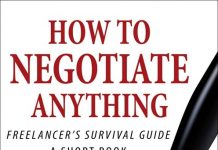 My RSS feeds have been flooded this week with stories about the latest Amazon vs Hachette development, the letter author Douglas Preston initiated urging readers to email Jeff Bezos and tell him what they think.
My RSS feeds have been flooded this week with stories about the latest Amazon vs Hachette development, the letter author Douglas Preston initiated urging readers to email Jeff Bezos and tell him what they think.
I have written before about this and pointed out that tons of companies limit or restrict sales for all sorts of reasons. I myself have been on the hunt for a certain lunch container ever since I heard about its release, but the Canadian reseller doesn’t have it yet because the creator likes to sell it on their website exclusively first, before they offer it to other vendors. And nobody is saying they are evil for it. There is no pre-order button, no email list, nothing. It’s just ‘when we have it, we’ll put it up and then you can buy it.’ And…well, let’s just say that if I resolve to sit here and wait while you all get out the torches and pikes for their heads, I will miss the wedding I’m going to this evening.
Meanwhile, the course I am taking this summer is all about reading, and they make the useful point in the course textbook that even in this enlightened tech age, teachers seem to prioritize print, and that the assessment of reading is still mostly pen and paper based. Printed text is important, nobody would say it is not. But the book goes on to identify other aspects of literacy, all important, which get the short shrift sometimes. There is media literacy, for instance, which helps students learn to process and interpret all of that printed text they read.
So, why is Amazon being vilified here? Why is nobody calling for the head of the lunchbox maker—who surely takes their profits and their vendor relationships, and their product development just as seriously as Hachette takes theirs—not being vilified for restricting the supply chain, for failing to make product available through the channels people prefer, for failing to offer a pre-order button? Is it because people still do romanticize those printed books? Would anybody care if this was actually about just a product, and not a piece of perceived art?

































Personally, I think it is because Amazon has done a wonderful PR job of making consumers think that everything it does is in the consumer’s best interest and not necessarily in Amazon’s best interest. The attitude seems to be that Amazon is a charity-driven organization who will forever sacrifice profits just to please consumers.
There is one other point worth noting. The people most in favor of whatever Amazon wants are those who have (as much as is possible) forsaken print for ebooks, whereas those who seem to favor Hachette (and by extension the traditional publishers) still revere and want (and purchase) print books along with ebooks.
The other thing I have noticed as a divider is that those most in favor of whatever Amazon wants and most likely to believe an Amazon claim are people who buy most of their books (and other products) from Amazon and may even be Prime members. Those who tend not to buy from Amazon, are not Prime members, or who buy at Amazon and other stores somewhat equally tend to be less supportive of Amazon.
The more antipublisher a commenter is, the more likely that person rarely, if ever, buys a print book and the more likely that person buys primarily from Amazon.
I may be wrong about my conclusions, but I think the comments support the conclusions I have drawn.
@Joanna- Probably not and I don’t get the vilification of Amazon over this either. At least not until I know for sure what the sticking point is. There have been enough leaks, PR campaigns, etc. from the Hachette side to make me think it has to be agency pricing and if we find out that to be the case, I’ll be vilifying Hachette. I haven’t forgotten that they were a price fixer. Back to the sidelines for now.